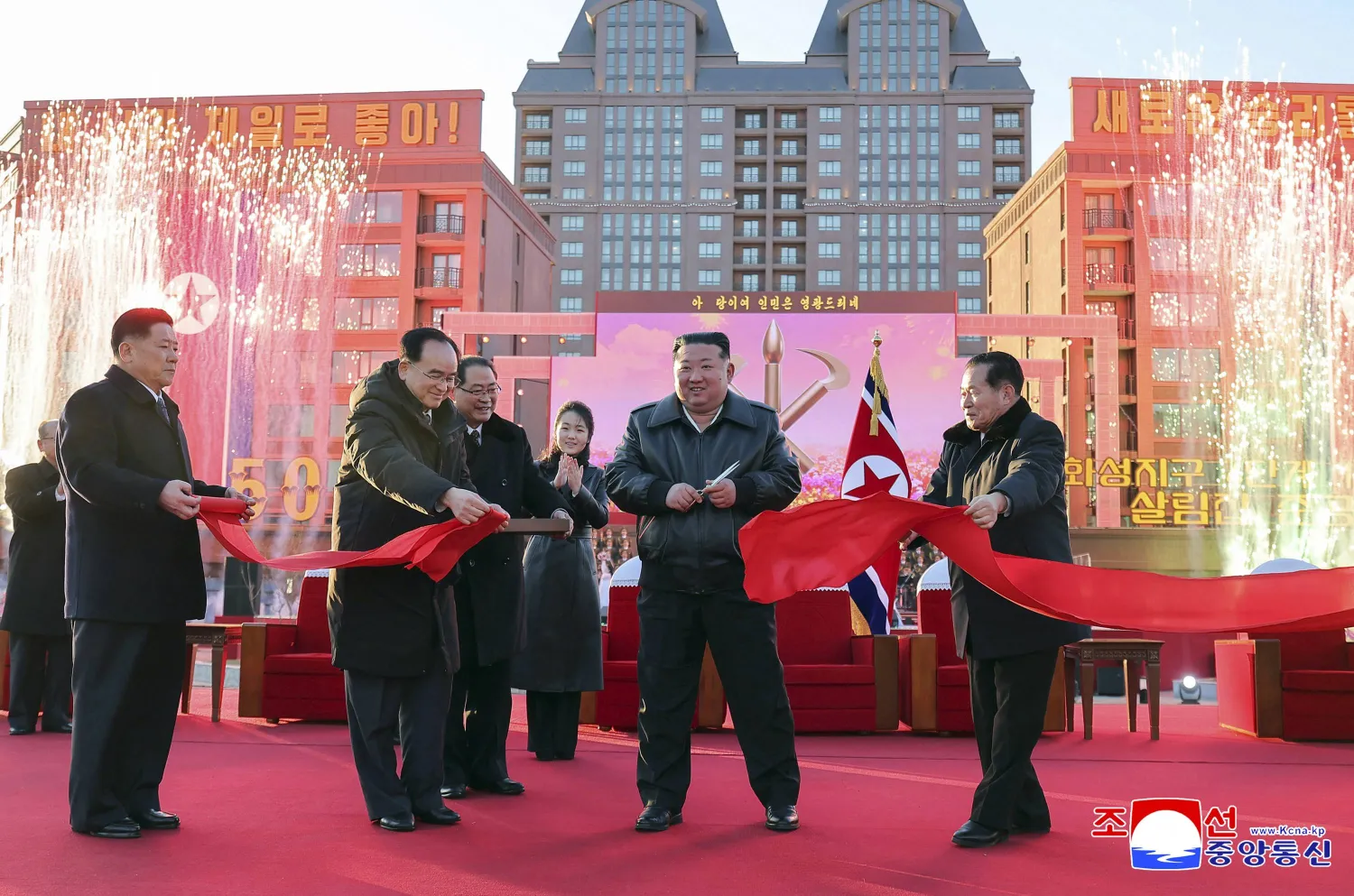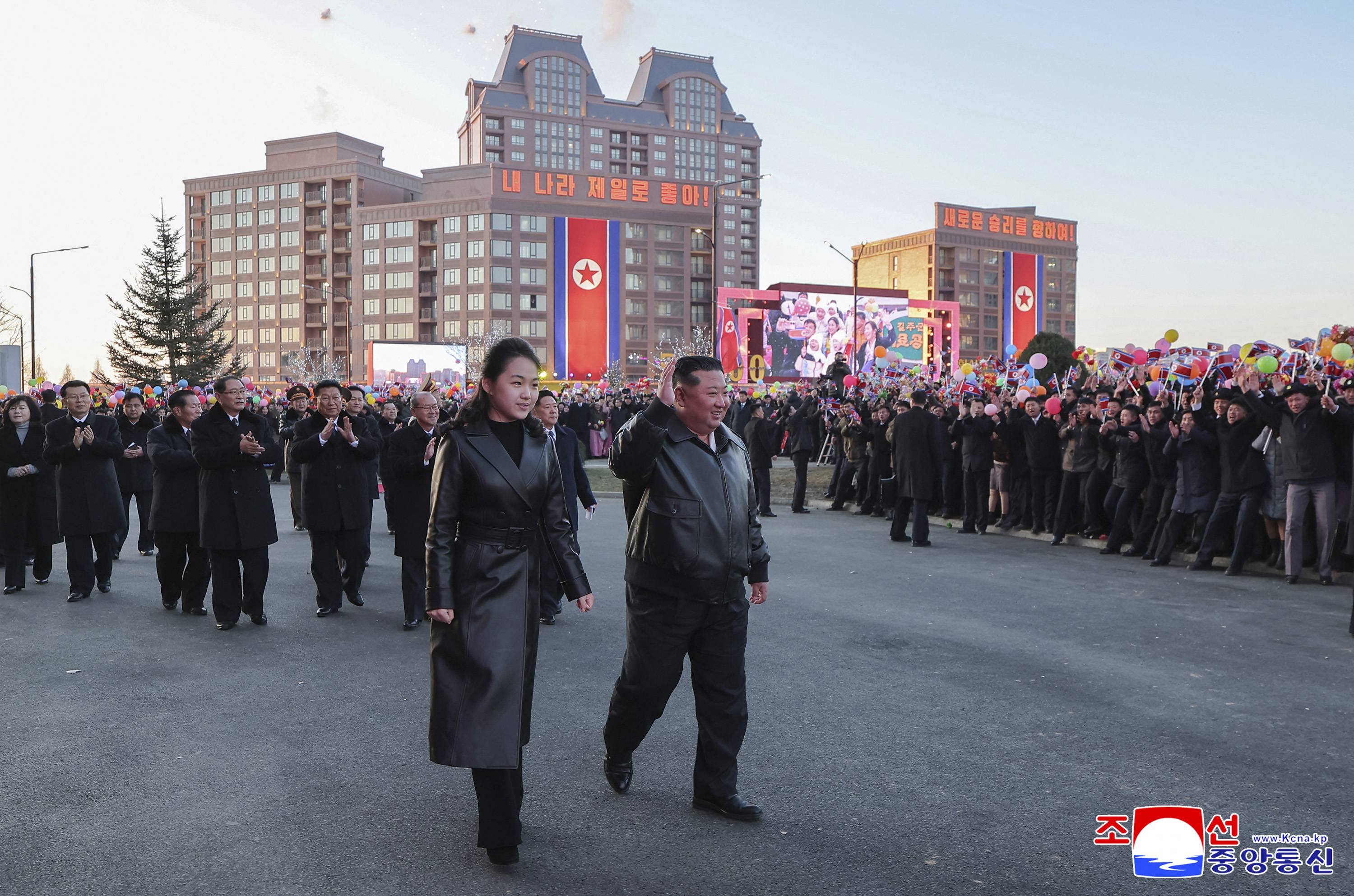US President Donald Trump said he would impose a 10% baseline tariff on all imports to the United States and higher duties on some of the country's biggest trading partners, drawing defiant responses from leaders and governments around the world.
Trump is not imposing his new 10% global tariff rate on goods from top trading partners Canada and Mexico while his previous order remains in place for up to 25% tariffs on many goods from the two countries over border control and fentanyl trafficking issues, the White House said in a fact sheet.
Here are some reactions from top officials and governments around the world: EUROPEAN COMMISSION PRESIDENT URSULA VON DER LEYEN "President Trump's announcement of universal tariffs on the whole world, including the EU, is a major blow to the world economy.Uncertainty will spiral and trigger the rise of further protectionism. The consequences will be dire for millions of people around the globe.We are already finalizing a first package of countermeasures in response to tariffs on steel. And we are now preparing for further countermeasures, to protect our interests and our businesses if negotiations fail."
CHINA COMMERCE MINISTRY "China firmly opposes this and will take countermeasures to safeguard its own rights and interests.There are no winners in trade wars, and there is no way out for protectionism. China urges the US to immediately lift unilateral tariffs and properly resolve differences with its trading partners through dialogue on an equal footing."
JAPAN PRIME MINISTER SHIGERU ISHIBA "The US government's broad trade restrictions will have a significant impact not only on the economic relationship between Japan and the US, but also on the global economy and the multilateral trading system as a whole.We have serious concerns about the consistency of these measures with the WTO Agreement and the Japan-US Trade Agreement.We will continue to strongly urge the US to review its measures."
CANADIAN PRIME MINISTER MARK CARNEY "(Trump) has preserved a number of important elements of our relationship, the commercial relationship between Canada and the United States. But the fentanyl tariffs still remain in place, as do the tariffs for steel and aluminum.We are going to fight these tariffs with countermeasures, we are going to protect our workers, and we are going to build the strongest economy in the G7."
BRAZILIAN FOREIGN MINISTRY "The Brazilian government regrets the decision made by the North American government today, April 2, to impose additional tariffs of no more than 10% on all Brazilian exports to that country.The Brazilian government is evaluating all possible actions to ensure reciprocity in bilateral trade, including resorting to the World Trade Organization, in defense of legitimate national interests."
AUSTRALIAN PRIME MINISTER ANTHONY ALBANESE "The (Trump) administration's tariffs have no basis in logic and they go against the basis of our two nations' partnership. This is not the act of a friend. Today's decision will add to uncertainty in the global economy and it will push up costs for American households."
SOUTH KOREAN ACTING PRESIDENT HAN DUCK-SOO "As the global trade war has become a reality, the government must pour all its capabilities to overcome the trade crisis."
NEW ZEALAND TRADE MINISTER TODD MCCLAY "New Zealand's interests are best served in a world where trade flows freely ... New Zealand's bilateral relationship with the US remains strong. We will be talking with the administration to get more information, and our exporters to better understand the impact this announcement will have."
SPANISH PRIME MINISTER PEDRO SANCHEZ "Spain will protect its companies and workers and will continue to be committed to an open world."
SWEDISH PRIME MINISTER ULF KRISTERSSON "We don't want growing trade barriers. We don't want a trade war ... We want to find our way back to a path of trade and cooperation together with the US, so that people in our countries can enjoy a better life."
SWISS PRESIDENT KARIN KELLER-SUTTER "(The Federal Council) will quickly determine the next steps. The country's long-term economic interests are paramount. Adherence to international law and free trade remain core values."
IRISH PRIME MINISTER MICHEAL MARTIN "The decision by the US tonight to impose 20% tariffs on imports from across the European Union is deeply regrettable. I strongly believe that tariffs benefit no one. My priority, and that of the government, is to protect Irish jobs and the Irish economy."
ITALIAN PRIME MINISTER GIORGIA MELONI "We will do everything we can to work towards an agreement with the United States, with the goal of avoiding a trade war that would inevitably weaken the West in favor of other global players."
MANFRED WEBER, PRESIDENT OF THE EPP, LARGEST PARTY IN EUROPEAN PARLIAMENT "To our American friends, today isn't liberation day - it's resentment day. Donald Trump's tariffs don't defend fair trade; they attack it out of fear and hurt both sides of the Atlantic. Europe stands united, ready to defend its interests, and open to fair, firm talks."
COLOMBIAN PRESIDENT GUSTAVO PETRO "We will only make US imports more expensive if they take away our jobs. But we won't raise tariffs if their goods help create higher-value jobs."










